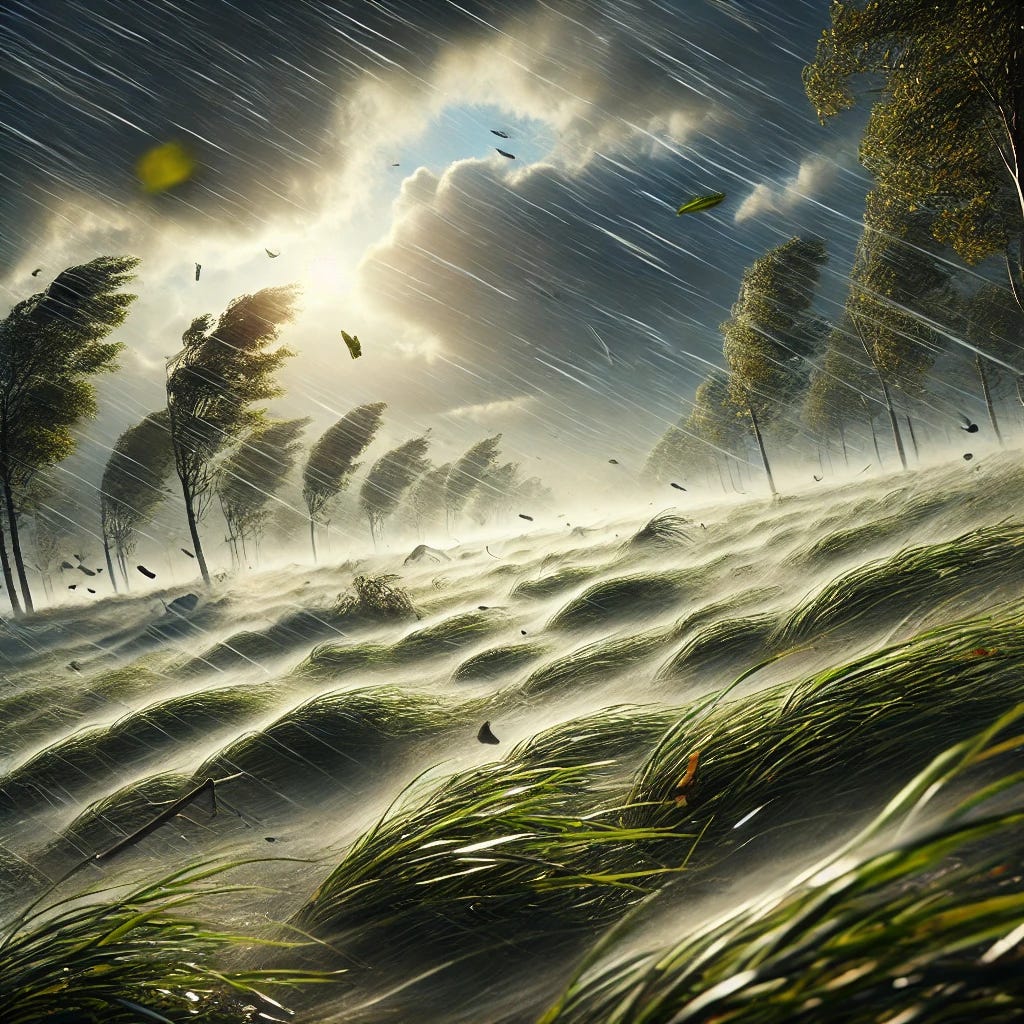Reflecting on the Unpredictable Path of U.S. Politics: Ill Winds, Ahead.
Navigating America's Political Uncertainty
Which Way Does the Wind Blow?
by Lucy Aikin
Which way does the wind blow,
And where does he go?
He rides o’er the water,
He rides o’er the snow.
He blows and he tosses
The leaves from the tree,
As when you look upward,
You plainly can see.
From what place he comes,
To what place he goes,
There’s no one can tell you,
There’s no one who knows.
I can say with full honesty that I am anxious about the future of our nation. Every nomination that Trump makes to help lead the nation is either an amateur or as criminal and reprehensible as he is. Here is a new example of my concern:
“House Speaker Mike Johnson said transgender women cannot use women's restrooms in the Capitol and House office buildings. This also applies to changing rooms and locker rooms, Johnson said.”
Which Direction Does the Wind Blow?
The poem "Which Direction Does the Wind Go?" brings a feeling of mystery and fascination about a powerful yet hard-to-grasp force: the wind. We all feel the wind but can't touch or predict it. This poem makes us think about the wind as a physical force and a symbol of the unknown factors that influence our lives.
The wind moves across the land, disregarding borders. It blows over water, snow, and trees, affecting everything we cannot see. This characteristic reflects unseen influences in life, like emotions and ideas, that shape how we think and act without being obvious or easy to grasp. Like how the wind shakes leaves from trees, these unseen influences affect the events and relationships in our lives.
The poem inspires a childlike curiosity, urging us to look up and notice the world. The wind represents freedom and signifies the world's vastness, inviting us to dream about endless possibilities beyond our understanding. It implies that some matters are experienced rather than understood or controlled.
But, today, there is an ill wind blowing.
In my opinion, the poem also represents the worries and uncertainties many people have about the future of the United States. Obviously, the poem was not written with that intent. The poet is Lucy Aikin who lived from 1781 to 1864. However, if we use some imagination we can say that, just like the wind moves in unpredictable ways, political events are happening that cause many of to us wonder what we are headed into.
Considering concerns about Donald Trump's presidency and the country's future, the wind symbolizes the strong and often hidden forces that affect national and world affairs. These forces include political beliefs, economic pressures, and worldwide event. Like the wind, the future is unpredictable because Trump is impulsive and unpredictable. Or understand.
The difficulty of knowing where the metaphorical wind it comes from and where it goes represents the worries of many people about the direction of political leadership and policies. More than ever there is fear of the unknown. People worry about how today's decisions might ripple through time and space, just as the wind sweeps over the water and rustles leaves. This unpredictability can intensify fears about stability and the nation's future.
The poem offers a chance for thought. While we can't control the wind, we can learn to steer through its twists and turns. This can serve as a call to action, encouraging people to stay engaged and informed. Uncertainty doesn't mean we are powerless. Just as planting trees can help guard against the wind, citizens can work on strengthening the fundamental values and systems in our democracy.






As a sailor, I have a treasured mug imprinted with that saying: “We can’t control the direction of the wind but we can adjust our sails.” Thank you for the reminder.